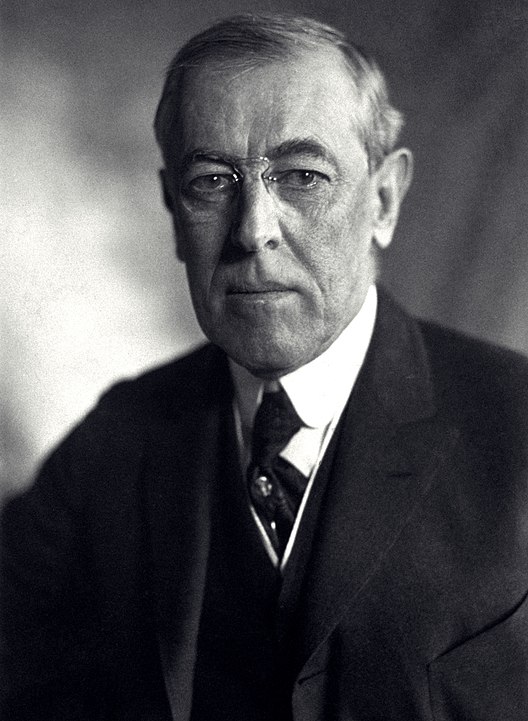Establishment of Federal Reserve
Woodrow Wilson approved the Federal Reserve Act into law on December 23, 1913. It founded and established the Federal Reserve System, the United States’ central banking system. It also gave the newly formed framework legal authority to issue Notes from the Federal Reserve (U.S. Dollar). The Act has far-reaching effects, including the internationalization of the United States. The dollar is the world currency.
The Clayton Antitrust Act
The Sherman Antitrust Act of 1890 was the first Federal law outlawing practices considered harmful to consumers. President Wilson pushed through Congress the Clayton Antitrust Act, signed into law on October 15, 1914. The Act made certain business practices illegal, like agreements prohibiting retailers from handling other companies’ products. It was more potent than previous antitrust laws since it dictated individual corporate officers’ accountability and clarified guidelines.
Establishment of Federal Trade Commission
In September 1914, Woodrow Wilson signed the Federal Trade Commission Act, which created a five-member board, the Federal Trade Commission, to regulate dubious business practices. The two antitrust laws and the Federal Trade Commission are vital in protecting the competition process for customers’ benefit, ensuring that companies are strongly encouraged to operate effectively, keep prices down, and maintain quality. These are the cornerstones of antitrust laws and are still viable today.
Agricultural Policies
For the majority of the rural population, several initiatives have been implemented. The Smith-Lever Act of 1914 enabled farmers to learn new agricultural techniques by implementing home teaching, among other items. To raise credit to rural family farmers, the 1916 Federal Farm Loan Act was passed. It did so by forming a federal farm loan board, 12 regional farm loan banks, and hundreds of farm loan organizations. The Smith-Lever Act allowed farmers to compete with big businesses employing competitive loans.
Labor Issues
He pressed through Congress laws to develop an agency to oversee overseas shipping, make the first government loans to farmers, ban child labor, increase income and inheritance taxes, and require an eight-hour workday for railroad employees.
A strike by railroad employees endangered the U.S. economy in 1916. Via his full eight-hour workday proposal, Wilson solved the dilemma. The Adamson Act was passed, incorporating the plan from the President. It defined an eight-hour workday for interstate railroad employees, with extra pay for overtime work. They canceled the strike, and for averting a national economic tragedy, Wilson was lauded.
League of Nations
As an outcome of the Paris Peace Conference that ended the First World War, the League of Nations was an intergovernmental organization established in 1920. One of the key people responsible for the League’s founding was President Woodrow Wilson, and he greatly influenced the shape it took. He was awarded the Nobel Peace Prize in October 1919 because of his contributions to international peace.
Women’s Suffrage
Woodrow Wilson favored state-level women’s suffrage for years but rejected support for an initiative that would guarantee women the right to vote. The movement was possible because, on the topic, his party was divided. But Wilson made an explicit and widely publicized appeal to the House supporting the suffrage amendment after the significant role played by women during World War I. The approval of Wilson was vital to the cause. The U.S. Nineteenth Amendment of the Constitution was legally ratified in 1920. It forbids the right to vote based on sex from being denied to any United States resident.
Influential Ideology
In January 1918, in a speech on War Aims and Peace Terms, Woodrow Wilson put out his famous Fourteen Points to achieve world peace. These arguments, along with Wilson’s foreign policy theory, gave rise to Wilsonianism which calls for the advocacy of democracy and capitalism, among other items. Several U.S. presidents have been repeatedly referred to as upholding the trend of Wilsonianism in America, including Bill Clinton, George W. Bush, and Barack Obama.
Segregation of Government Offices
Woodrow Wilson’s first term had a nasty side, too. Despite his Southern birth and upbringing, the President held racial views that mirrored the then prevailing indifference of white Northerners to African Americans’ injustices. However, Southerners were some of Wilson’s cabinet members, and they asked that segregation be incorporated into the federal government. Wilson allowed such attempts to move forward. Demonstrations by the newly formed National Association for the Advancement of Colored People (NAACP) forced the government to drop some of the most overtly discriminatory initiatives, such as “white” and “colored” toilets.
Similarly, the numbers and percentages of African Americans sharply decreased in the federal workforce, a practice that persisted in the 1920s under Northern-dominated Republican administrations. By having a well-publicized White House screening of D.W., Wilson further soured his ties with African Americans. An artistically ambitious yet blatantly racist film by Griffith, The Birth of a Nation. Woodrow Wilson’s only step towards improving race relations came in July 1918, when he eloquently but belatedly condemned lynching during his second term.
Final Years
Woodrow Wilson lived in Washington, D.C., after leaving office in March 1921. He and a partner formed a law firm, but poor health prevented the President from ever doing any significant work. On February 3, 1924, Woodrow Wilson died at the age of 67 at his home. He was buried in the National Cathedral of Washington, the first president to be buried in the country’s capital.
US Presidents | ||

